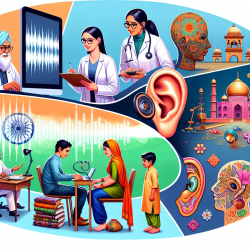The Shocking Truth About IEP Planning That Every SLP Needs to Know!
As a speech-language pathologist (SLP), you are well aware of the critical role Individualized Education Program (IEP) meetings play in shaping the educational journey of children with speech and language needs. However, the key to effective IEP planning lies in data-driven decisions that ensure optimal outcomes for the children we serve. Let’s explore how we can harness the power of data to inspire and transform our approach to IEP meetings.
Why Data-Driven Decisions Matter
Data-driven decision-making is not just a buzzword; it's a crucial aspect of providing effective speech therapy services. When we rely on evidence-based practices and real-time data, we can tailor our interventions to meet the unique needs of each child. This approach not only enhances the quality of our therapy but also empowers us to advocate for the most appropriate goals and services during IEP meetings.
Consider the following benefits of data-driven IEP planning:
- Objective Measurement: Quantifiable data provides a clear picture of a child's progress, allowing us to set realistic and achievable goals.
- Informed Decision-Making: With accurate data, we can make informed decisions about the type and intensity of services required.
- Enhanced Collaboration: Data fosters better communication and collaboration among IEP team members, ensuring that everyone is on the same page.
The Role of Online Therapy in IEP Planning
Online therapy, or telepractice, has revolutionized the way we deliver speech therapy services. With platforms like TinyEYE, we can provide high-quality, accessible services to children regardless of their location. This approach is particularly beneficial in IEP planning and meetings, as it offers several advantages:
- Flexibility: Online therapy allows for flexible scheduling, making it easier to accommodate the busy schedules of parents and educators.
- Access to Specialists: Telepractice connects students with specialists who may not be available locally, ensuring they receive the best possible care.
- Real-Time Data Collection: Digital platforms enable real-time data collection and analysis, providing valuable insights for IEP development.
Inspiring Change in Your Practice
By embracing data-driven strategies and leveraging the power of online therapy, you can inspire change and enhance the outcomes for the children you serve. Here are a few steps to get started:
- Embrace Technology: Familiarize yourself with online therapy platforms and tools that facilitate data collection and analysis.
- Engage in Continuous Learning: Stay updated on the latest research and best practices in speech therapy and telepractice.
- Advocate for Data-Driven IEPs: Use data to advocate for individualized goals and services that truly meet the needs of each child.
In conclusion, effective IEP planning requires a commitment to data-driven decisions and the innovative use of online therapy. By integrating these strategies into your practice, you can inspire better outcomes and make a lasting impact on the lives of children with speech and language needs.










